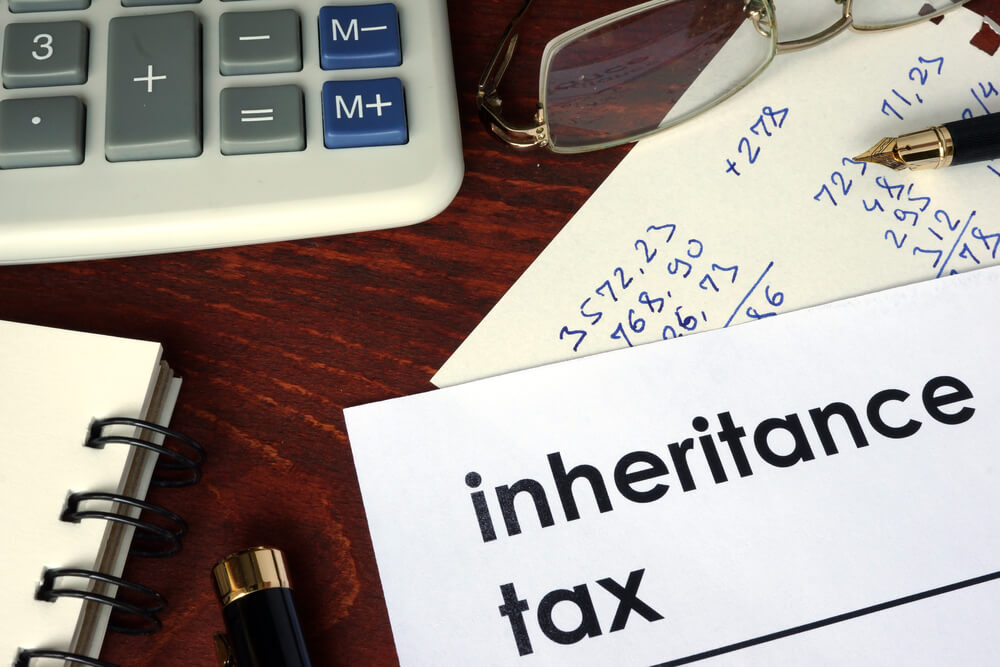The truth about Inheritance Tax
Who is paying it, who is not, and will it be abolished?
There has been pressure within the Conservative party to change or abolish Inheritance Tax for some time, and the question is whether Rishi Sunak will reduce the 40% Inheritance Tax rate in the March 2024 Budget, with a view to abolishing Inheritance Tax altogether in due course.
Inheritance Tax is charged at 40% on wealth over £325,000. This is the nil rate band (NRB). However, since April 2017, the residence nil rate allowance (RNRB) has been available on top of the NRB where the deceased leaves a residence to direct descendants (including children, grandchildren or stepchildren). This RNRB is currently set at £175,000 creating an allowance of £1 million between a married couple as both allowances are transferrable. To put this in context, in the 2020 to 2021 tax year, £15.7 billion was transferred to surviving spouses and civil partners on death.
How many estates actually pay Inheritance Tax?
Data published by HMRC in July 2023 shows that in the tax year 2020 to 2021, just 3.73% of UK deaths resulted in an Inheritance Tax charge. This was made up of 27,000 estates (an increase of 4,000 estates (17%) since the previous tax year 2019 to 2020). However, the Institute for Fiscal Studies has estimated that this 3.73% could rise to 7% over the next decade due to the “rapid growth in wealth among older individuals” and the freezing of the allowance.
Both the number and proportion of estates resulting in an Inheritance Tax charge are still below the all-time high of 34,100 (5.96% of all UK deaths) in the tax year 2006 to 2007, and the more recent high of 28,100 (4.62% of all UK deaths) in the tax year 2016 to 2017. The drop is in part due to both the introduction of the NRB in the tax year 2008 to 2009, and the fall in asset values after the 2008 financial crisis.
Which estates are paying Inheritance Tax and how much are they paying?
Inheritance Tax liabilities created in respect of the tax year 2020 to 2021 came to £5.76 billion. Net taxpaying estates valued at £1 million or more accounted for 81% (£4.7 billion) of this (£5.76 billion). Net estates valued at less than £1 million accounted for £1.06 billion of the total tax liability.
The average amount of tax paid per estate has been increasing year on year for over a decade. For the period 2014 to 2018, the average liability was approximately £179,000. In the tax year 2017 to 2018, this had increased by £18,000 (10%) to £197,000. In the tax year 2020 to 2021, the average liability per estate was £214,000.
The arguments against Inheritance Tax
Inheritance tax is inherently unpopular. The most common complaint is that it’s unfair because tax is levied twice — once when you earn your money and then again when you die. Moreover, it is payable at a time when families are both emotionally and, more often than not, financially vulnerable as they assess the impact of their loved one’s death on their situation.
A second argument, persuasively pursued by many, is that Inheritance Tax hits the reasonably well-off upper Middle Class disproportionately hard compared to the super wealthy, for whom there seem to be a number of exemptions or loopholes.
Dated loopholes and exemptions
Let’s take the example of Akshata Murty (the Prime minister’s wife). Her non-domicile status (she is officially domiciled in India where they abolished Inheritance Tax several decades ago) combined with a treaty between India and the UK that dates back to the 1950s, means her estate is not liable to pay the £300 million UK Inheritance Tax she would otherwise have to pay if domiciled in the UK. And whilst this may seem like an extreme example, it’s certainly not an isolated one.
Agricultural and Business Property Relief (APR and BPR)
The two main exemptions from Inheritance Tax are Agricultural and Business Property Relief (APR and BPR) which exempt privately owned companies, woodlands and farms and land, houses and buildings aligned to businesses.
There are of course strict conditions that need to be met to benefit from these exemptions and there is a strong and sensible rationale behind them. To insist on an Inheritance Tax liability upon death could force a sale, put some businesses out of business altogether or at the very least inhibit their potential to operate or raise funds.
What’s more, there is a genuine risk that if you abolish some Inheritance Tax exemptions less money will be invested in high-risk companies – money which would otherwise be Inheritance Tax exempt. This could result in a shortage of investment capital and this in turn has the potential to be very damaging for the wider economy.
However, these exemptions are also now widely used as highly effective tax planning measures and in the tax year 2020 to 2021, the combined value of Agricultural and Business Property Relief was £4.2 billion. This was an increase of £1.4 billion (51%) compared to the tax year 2019 to 2020 (with most of that figure falling within BPR). And according to the Financial Times, the cumulative effect of the various Inheritance Tax exemptions and reliefs is that for those with wealth of £10 million or more, far from being taxed at 40%, the effective rate actually only works out to be closer to 10%.
Will he, won’t he? Should he, shouldn’t he?
Cutting Inheritance Tax is an obvious call to the voters, but the Institute for Fiscal Studies estimates scrapping Inheritance Tax would cost the government almost £15 billion a year in lost revenue by 2032. But by way of counter-argument, according to the Financial Times, Inheritance Tax produces less than 1% of total tax revenues and the actual impact of scrapping Inheritance Tax would just be a 1% tax cut for the wealthiest.
There are alternatives to the current model, like the French system whereby they tax the recipient rather than the deceased’s estate. And there are a few countries like India that have no Inheritance Tax at all. But whether the current UK Government is the one to give our Inheritance Tax regime a complete overhaul, well, that still remains to be seen.
As always, the contents of this post are meant as guidance only and if you have any concerns or wish to discuss any of the issues arising, please get in touch.



